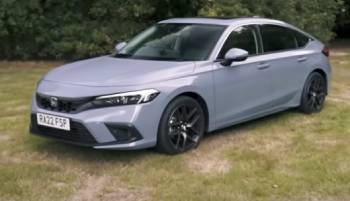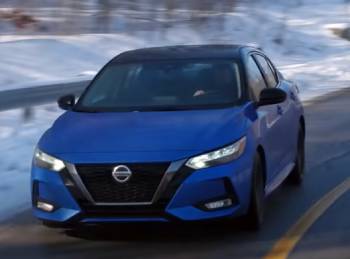In the world of compact sedans, two names tend to dominate the discussion: the Honda Civic and the Nissan Sentra. Both are legends in their own right, offering a blend of reliability, affordability, and style.
Yet, how do they stack up against each other? Let’s dive deep and see.
A Brief Comparison Table
| Feature/Aspect | Honda Civic | Nissan Sentra |
| Performance | Sporty, engaging drive | Comfort-oriented, smoother ride |
| Interior Quality | Premium feel, modern design | Minimalist, good quality |
| Infotainment | Feature-rich, slightly complex | Intuitive, user-friendly |
| Safety Features | Honda Sensing Suite, high safety ratings | Safety Shield 360, slightly fewer features in base trims |
| Fuel Efficiency | Exceptional mpg ratings | Good, slightly behind the Civic |
| Resale Value | High, depreciates slower | Decent, faster depreciation |
Honda Civic: The Iconic Challenger

The Honda Civic is something of an icon in the automotive world. Known for its reliability and fuel efficiency, it’s been the go-to choice for many over the years.
Pros of the Honda Civic:
- Performance:
The Civic is zippy and fun to drive, making city rides and highway cruises a breeze.
- Fuel Efficiency:
Few sedans can rival the Civic’s mpg ratings. It’s a fuel-sipper that’s kind to your wallet.
- Safety:
With Honda’s Sensing Suite, you’re treated to a range of advanced safety features.
- Resale Value:
Hondas, particularly Civics, are known to hold their value well over time.
- Interior Quality:
The materials feel premium, and the design is intuitive.
Cons of the Honda Civic:
- Price:
Higher trim levels can get pricey.
- Infotainment System:
Some users find the interface a tad bit complex.
- Exterior Design:
The polarizing design may not appeal to everyone.
Also Read: Differences Between Mobil 1 Truck & SUV And Extended Performance Oil.
Nissan Sentra: The Dependable Competitor

The Nissan Sentra, a vehicle with its own dedicated fanbase, offers an enticing package for those seeking an affordable yet comfortable drive.
Pros of the Nissan Sentra:
- Price Point:
The Sentra is generally more affordable across its range compared to the Civic.
- Ride Comfort:
Nissan has done a stellar job in ensuring a smooth, cushioned ride.
- Spacious Interior:
The cabin feels airy, and there’s ample legroom for both front and rear passengers.
- Standard Features:
Even the base model comes loaded with a decent set of tech and safety features.
- Reliability:
Sentras have a history of longevity and few major mechanical issues.
Cons of the Nissan Sentra:
- Engine Power:
It’s not as peppy as the Civic, especially on highway overtake scenarios.
- Fuel Efficiency:
While still decent, it doesn’t quite reach the Civic’s mpg numbers.
- Resale Value:
Typically, Sentras don’t hold their value as well as Civics.
Honda Civic and Nissan Sentra: Head to Head
At face value, both the Honda Civic and Nissan Sentra bring a lot to the table. The decision between the two often boils down to personal preference and specific needs.
If you’re looking for spirited drives, the Civic might lean in your favor. However, if budget and comfort take precedence, the Sentra might be your cup of tea.
Key Differences Between Honda Civic and Nissan Sentra
The automotive industry is rife with rivalries, and when it comes to compact sedans, Honda Civic and Nissan Sentra are at the forefront. While both vehicles have their fan base and share some similarities, they diverge in several crucial areas. Let’s break down these differences:
- Performance and Drive Experience
Honda Civic:
The Civic is renowned for its lively driving experience. Honda typically equips the Civic with a more powerful engine lineup, including turbocharged options. This leads to quicker acceleration, crisper handling, and an overall more engaging drive. The Civic’s suspension is also tuned a bit sportier, making it responsive and fun around curves.
Nissan Sentra:
The Sentra prioritizes comfort. Its engine options are generally tuned more for efficiency and smooth operation than raw power. As such, the Sentra isn’t as sprightly off the line as the Civic. However, its softer suspension setup provides a cushier ride, making it a favorite for those who prioritize ride comfort over sporty handling.
- Interior Quality and Comfort
Honda Civic:
The Civic’s interior is all about offering a premium feel, especially in the higher trims. Materials feel top-notch, and the design language is modern. Plus, the ergonomic layout ensures everything is within the driver’s easy reach.
Nissan Sentra:
The Sentra doesn’t lag far behind. Its cabin is quiet, and the design is more on the minimalist side. While material quality is commendable, especially for its price point, it might not feel as upscale as the Civic in certain trims.
- Tech and Infotainment
Honda Civic:
Honda’s infotainment system has gone through various updates. While it’s feature-packed, some users find it a bit tricky to navigate, especially the touchscreen interface. However, features like Apple CarPlay and Android Auto come standard in most trims.
Nissan Sentra:
Nissan’s infotainment feels more intuitive. The touchscreen is responsive, and physical buttons for essential functions are a welcome touch. Like the Civic, it also supports Apple CarPlay and Android Auto in most trims.
- Safety Features
Honda Civic:
The Civic benefits from the Honda Sensing Suite – a plethora of advanced safety features that include adaptive cruise control, lane-keeping assist, and collision mitigation braking. It’s one of the reasons the Civic often ranks high in safety ratings.
Nissan Sentra:
The Sentra is no slouch in safety either. Nissan’s Safety Shield 360, available in many trims, offers features like automatic emergency braking, blind-spot warning, and rear cross-traffic alert. However, some advanced features are reserved for higher trims.
- Fuel Efficiency
Honda Civic:
One area where the Civic shines is fuel efficiency. Thanks to its engine options and continuously variable transmission (CVT), the Civic offers impressive mpg numbers, making it a favorite for commuters.
Nissan Sentra:
While the Sentra is efficient, it generally trails the Civic by a small margin in mpg ratings. Its focus on comfort over performance is a likely reason for this difference.
- Resale Value
Honda Civic:
One of the strong suits of the Civic is its resale value. Historically, Hondas hold their value exceptionally well, and the Civic is no exception.
Nissan Sentra:
The Sentra, while reliable, doesn’t command the same resale value as the Civic. It depreciates a bit more rapidly, which can be a factor for potential buyers.
Also Read: Differences Among Mobil 1, Castrol Edge And Pennzoil Platinum Engine Oil.
Frequently Asked Questions (FAQs)
There isn’t a one-size-fits-all answer. If you prioritize performance and resale value, the Civic may be a better choice. But for budget-conscious shoppers who value comfort and affordability, the Sentra stands out.
In many ways, yes. They’re both compact sedans targeting a similar demographic, but they have their distinct features and selling points.
In terms of exterior dimensions, they are quite similar, though specific measurements can vary based on the model year. However, the Civic often has a sportier, more aggressive stance.
While they are in the same class and their sizes are comparable, there can be slight differences in dimensions depending on the model year. Always check specific measurements if size is a concern.
Historically, Hondas, especially the Civic, have been lauded for their longevity. However, with proper maintenance, both brands can last well beyond the 200,000-mile mark.
Both brands have a solid reputation for reliability. However, Honda, especially the Civic, has traditionally been seen as the gold standard in this aspect. It’s always essential to consider individual car histories if buying used.
Conclusion
In conclusion, while the Honda Civic and Nissan Sentra are fierce competitors, your ideal choice depends on your personal needs and preferences.
Both are strong contenders in the compact sedan market, so you really can’t go wrong with either!



